For Jeannie Su, every weekend begins long before sunrise.
At 4am every Saturday, she drags herself out of bed and makes the long journey to J-Cube’s ice rink to start her ‘on-ice’ skating practice. The sessions last until 7am, before the rink opens its doors to the general public.
“We do high intensity routines with spins and jumps, so it’s not safe for us to train when there are people out and about,” she explains.
As a national figure skater, this is just one of the six training sessions she attends every week. Four of them are ‘on-ice’ sessions where the skaters practice their individual routines. The remaining two are ‘off-ice’ sessions which involve physical conditioning or the fine-tuning of advanced techniques.
It has been this way since she started competitive ice skating. Truth be told, however, Jeannie cannot exactly recall why her parents chose ice-skating as an activity for her, only that it began at the age of 4.
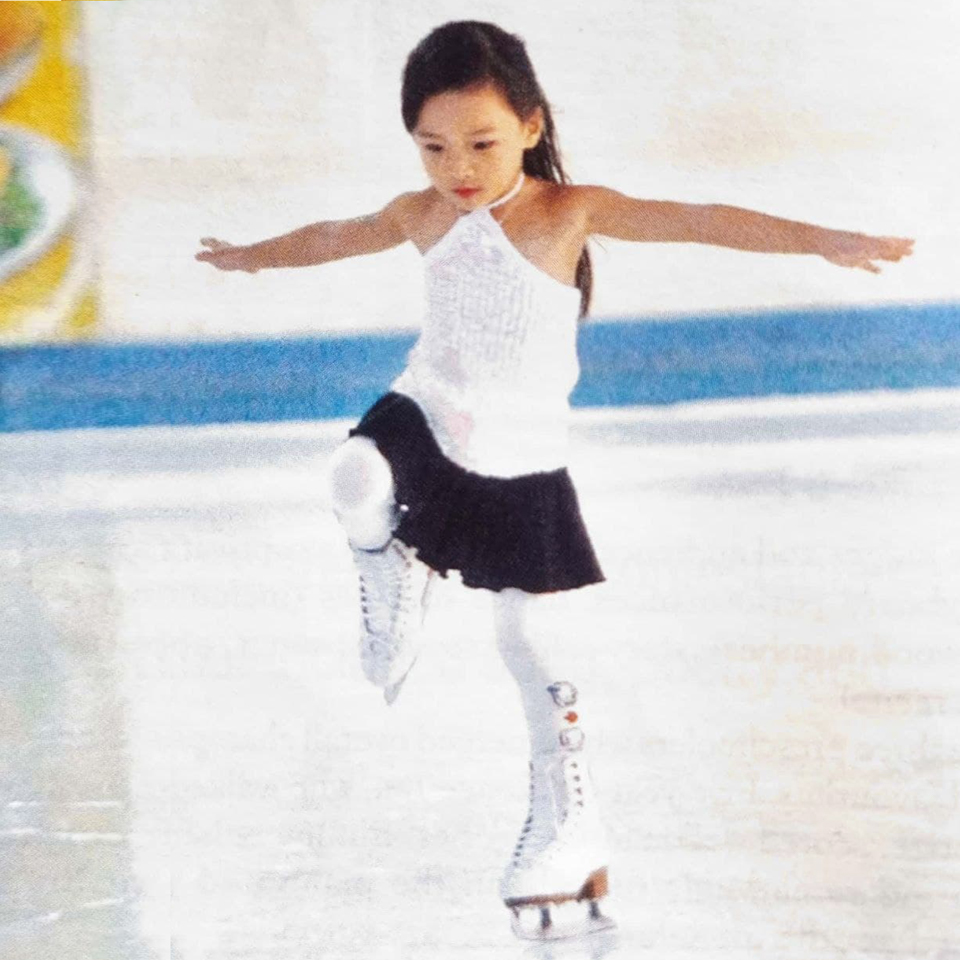 Jeannie ice-skating at 4 years old
Jeannie ice-skating at 4 years old
“My parents set me down in the rink and signed me up for some classes,” she recalls. “When I got a bit older and found that I liked it, that’s when the serious training really began. It was recreational at first, then it turned competitive.”
At 12, she joined the development team, which is equivalent to a youth team. At 15, she joined the national team, flying all over the world to represent Singapore in competitions.
However, what Jeannie finds most challenging about figure skating is the ‘mental game’ — how one responds to the pressure-cooker environment of an international competition, where one is surrounded by the best skaters.
“At a competition, you have to focus on what you’re doing and ignore everyone else,” she advises. “If you keep comparing yourself to others, you’ll get stressed if they do well. But if they don’t do well, you’ll get stressed too because you worry you won’t do well either.”
In 2019, after two difficult years, she was able to overcome her mental hurdles and finish a "clean" programme — the successful execution of elements of a whole programme without falling on any of the jumps. What’s equally amazing, however, was how Jeannie managed to compete at such a high level whilst studying full-time for her degree in Pharmaceutical Science at NUS Faculty of Science.
“As a student athlete, you have to manage your time wisely,” she advises. “I try to work my training schedule around my classes.”
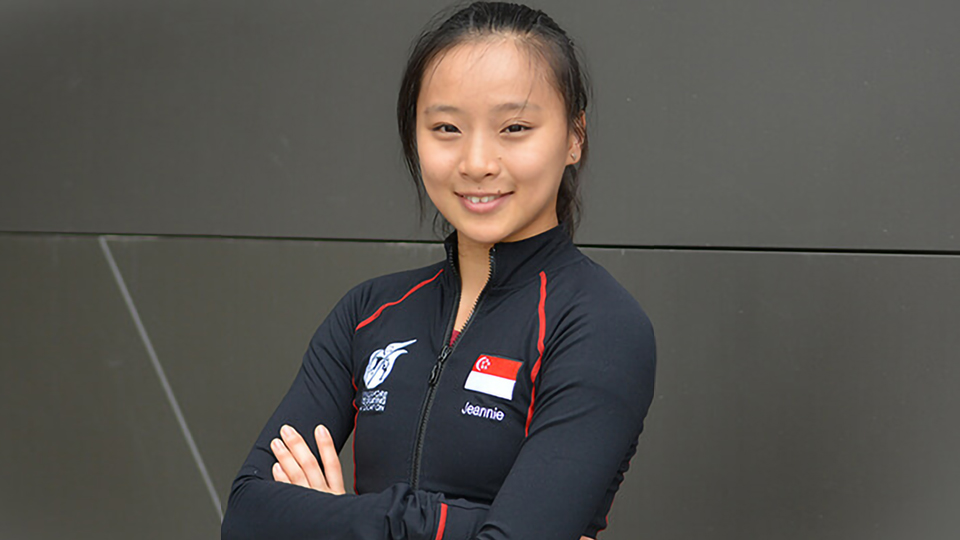 Jeannie has been a national athlete for the last 6 years
Jeannie has been a national athlete for the last 6 years
The NUS faculty also supported her on this journey, such as arranging a separate examination for her when an overseas competition clashed with her finals week in 2019. Her teachers, like Professor Ho Han Kiat, also set up separate consultations so she could catch up with coursework.
“I really enjoy Professor Ho’s classes. What I like about him is not just his passion, but how much he cares about getting us interested in the subject matter. He really makes sure we understand the concepts and topics.”
Ironically, COVID-19 was a great help. Since the lectures were moved online, she no longer had to rush back from the rink to attend classes. Instead, she could watch and absorb the lessons at her pace.
“In a way, it’s good because it gives me more flexibility with my time,” she says with a laugh. “But it’s easy for the classes to pile up, so I try to finish them each week.”
Being at NUS has also offered her opportunities to unwind from the tight schedule and singular focus demanded by skating. While staying at Ridge View Residential College (RVRC), she de-stressed by taking part in Contemporary Dance with NUS Synergy, and even found time to work up a sweat through the Captain’s Ball interest group.
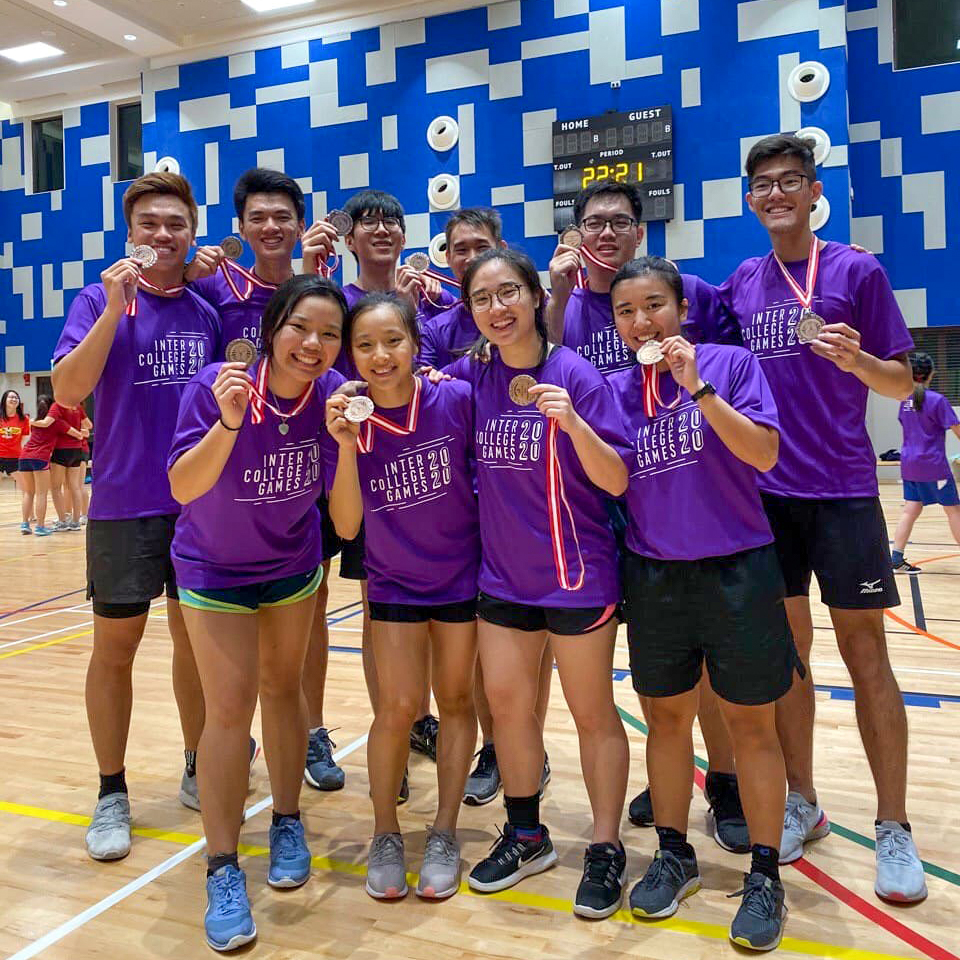 Jeannie, first row, second from left, with her teammates from RVRC at a Captain’s Ball tournament for the NUS Inter College Games (ICG)
Jeannie, first row, second from left, with her teammates from RVRC at a Captain’s Ball tournament for the NUS Inter College Games (ICG)
However, Jeannie points out that campus life is more than just the sum of all its activities. What she enjoys most is really the vibrant energy of the Residential College environment, where she is in close proximity to her friends and everything that is happening.
“When you’re staying on campus, I feel like you’re more immersed in university life,” she relates thoughtfully. “When you’re at home, you spend a lot of time doing nothing because there are many distractions. When you’re on campus, you don’t have to commute so you look for things that fill up your time more meaningfully.”
As a third-year student, her favourite event at NUS remains the NUS Students’ Union’s (NUSSU) Rag & Flag which took place during her freshman orientation. As part of the dance team that trained three times a week, she forged close and lasting bonds with her coursemates.
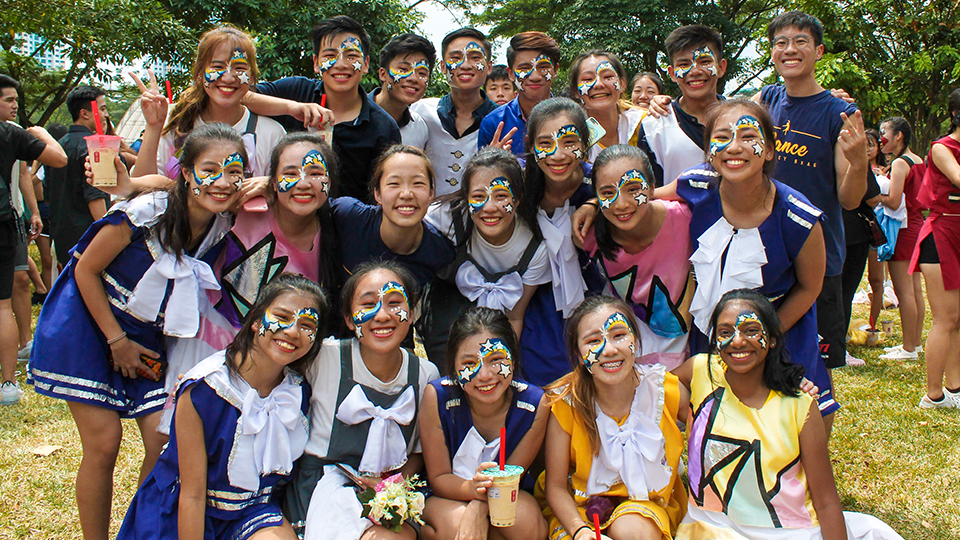 Jeannie, second row, second from right, with the Rag & Flag team from NUS Science
Jeannie, second row, second from right, with the Rag & Flag team from NUS Science
“It was a huge event, and everyone put in so much effort. By the end, you are crying and all your friends are crying as well.”
With graduation on the horizon, however, Jeannie is also starting to plan out her future. The Undergraduate Research Opportunities Programme in Science (UROPS) she is currently doing with Professor Rachel Ee has given her first-hand experience of what lab-based pharmaceutical research will entail.
Meanwhile, student-led projects like the Design Your Own Module (DYOM) scheme has given her the chance to collaborate with peers at RVRC from different faculties and backgrounds. Together, her team designed a bottle-rinsing machine to make recycling easier.
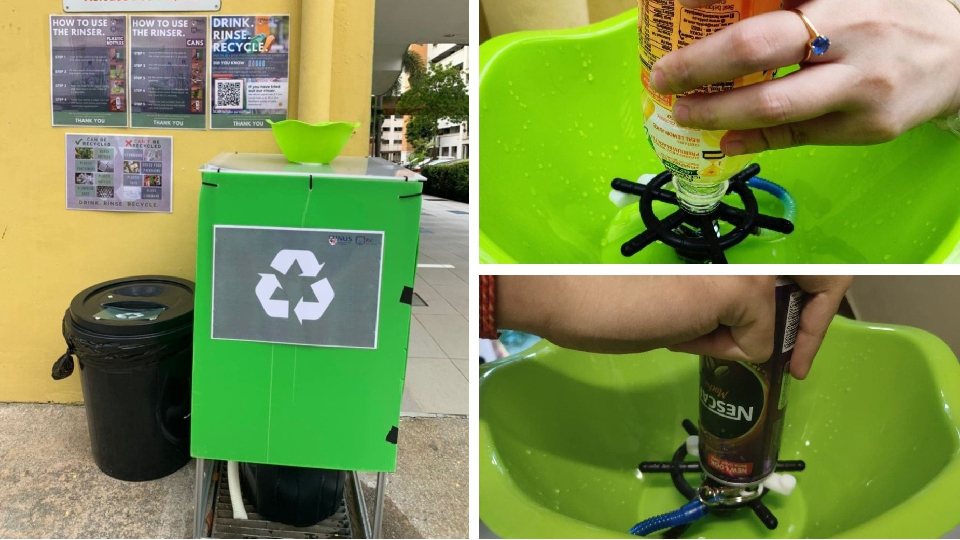 The bottle-rinsing machine designed by Jeannie and her DYOM teammates
The bottle-rinsing machine designed by Jeannie and her DYOM teammates
“Each team has about 10 students, and we would all work on different things. The Science student would do all the research and survey analysis, while the Engineering team would build the prototype,” she explains.
In 2022, she will start a semester-long internship with AstraZeneca’s Launch Excellence team. Jeannie hopes the experience will give her insight into the corporate processes that bring pharmaceuticals from the research phase to the retail phase.
“I’m quite interested to see how an actual pharmaceutical company works, and how the different departments come together to bring a drug to market,” she says.
Although she has yet to decide on her post-NUS career path, one thing is for certain: figure skating will continue to be an important part of her life — in one form or another. At the moment, she is slowly transitioning from competitive figure skating to coaching the next generation.
“Skating has always been a big part of my life,” she shares. “And I want to help other people find that passion and learn the skill.”
Skating may have taken up a big part of her schedule in her undergraduate journey thus far, but Jeannie’s self-discipline and time management skills have enabled her to pursue a variety of projects and passions at NUS. She hopes that her juniors will also come to embrace the diversity of opportunities available on campus.
“Be open, step out of your comfort zone, and try as many things as possible. Because this is your last time as a student before stepping into adulthood.”